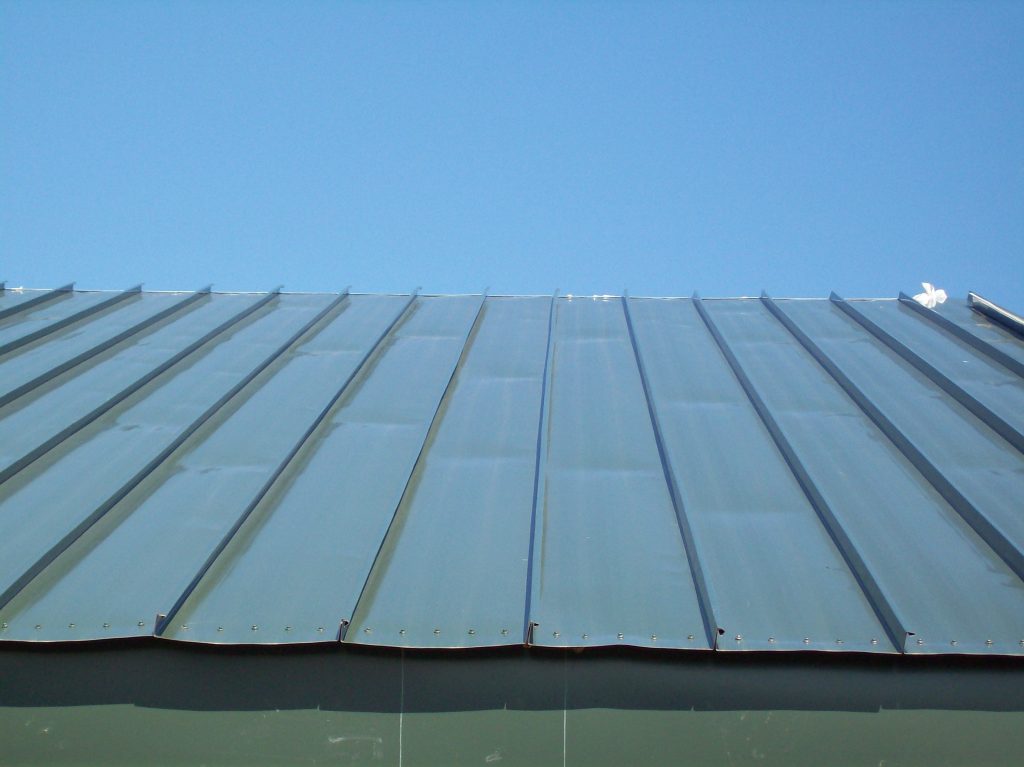
Oil canning, by definition, is the visible distortion and waviness that occurs with metal roof and wall panel systems. Also known as elastic buckling or stress wrinkling, oil canning doesn’t discriminate. It occurs in all metal material used in construction, including steel, zinc, copper, and aluminum. And while it doesn’t affect the integrity or performance of the material, it does detract from an otherwise sharp looking building.
Oil canning is caused by a lot of factors, like stresses during production, where the complex manufacturing process that creates panels includes many phases that take place on a continuous production line. Additionally, the skills and experience of your contractor can determine how much oil canning you will experience. When installing the panels, factors that can affect oil canning include incorrect fastener installation, improper handing and storage, panel misalignment, and not allotting enough space for thermal movement. That said, while it’s necessary to hire an experienced contractor, you can never completely disregard human error.
So considering both nature and man are trying to turn your perfectly good metal building into wavy gravy, a good building comes armed with a solution to your problem. This article aims to explain how we can lessen the negative aesthetic effects of oil canning.
Oil Canning in Single Skin Metal Panels
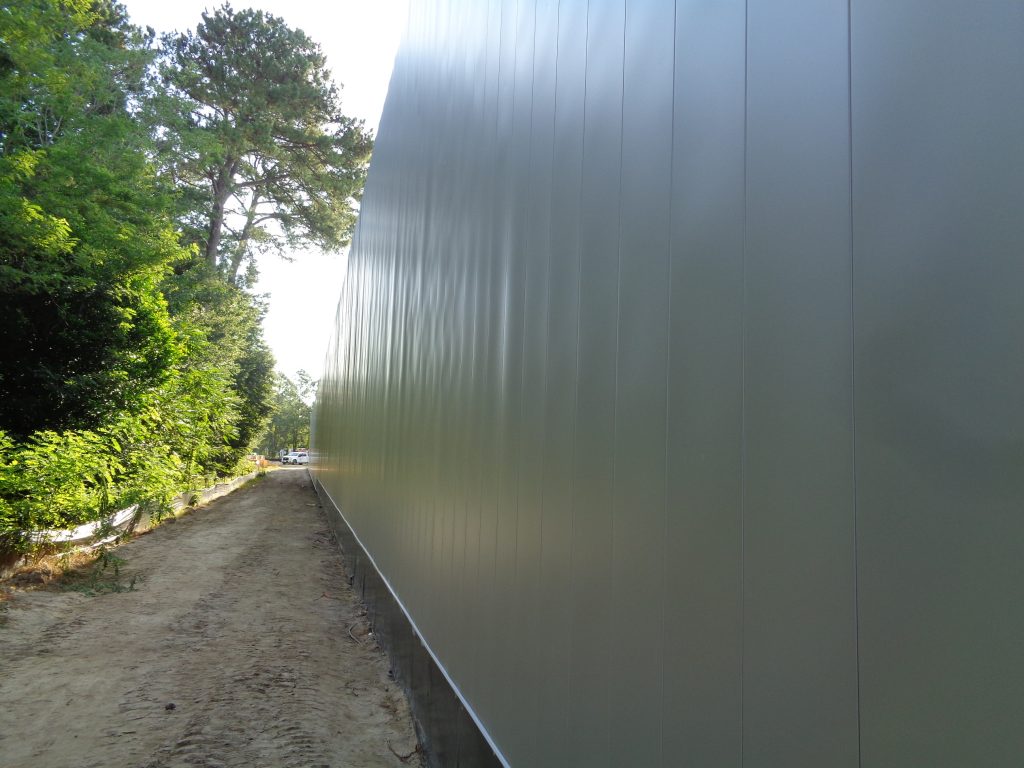
Oil canning is inherent in metal and (to some degree) happens to all wall and roof systems. The good news is that you can take preventative measures to prevent oil canning in the planning stages of your project.
First, oil canning is lessened when the metal is of a thicker gauge. If oil canning is a concern, it would be best to avoid 26- or 29-gauge products and opt for a heavier-weight 24-gauge (or less) material instead.
Second, the color of your panel can promote oil canning. And although all single skin panels have the same chance of developing oil canning, darker shades and glossier finishes tend to highlight waves and ripples in the panels the most. A lighter color in a low-gloss finish is an obvious choice to prevent this.
Last, the type of panel you choose can decide whether your building will be more or less prone to oil canning. The manufactured rib rollers (that is, those indentations or patterns that are roll-formed into the flat portion of metal panels) between the seams break up the amount of flat surface on a panel and can lessen the effects of oil canning less prominent. The most common rib rollers that minimize the look of oil canning on metal roofing and wall systems include ribs (V-ribs, bead ribs, pencil ribs), striations, and corrugations.
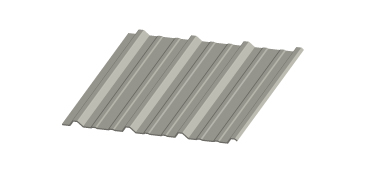 |
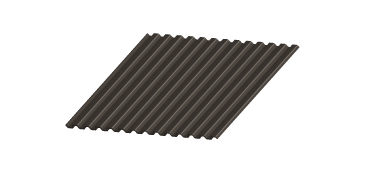 |
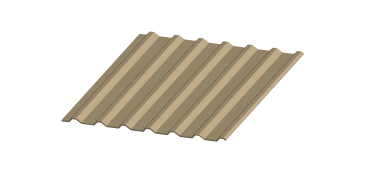 |
| Manufactured rib rollers such as ribs, striations, and corrugations lessen the effects of oil canning in single skin metal panels |
Oil Canning in Insulated Metal Panels
The best and simplest solution to control oil canning in insulated metal panels (IMPs) is to use embossed steel. Embossed or textured finishes disperse light that hits the surface of the panel, eliminating this phenomenon and making it difficult to see oil canning and any other imperfections in the steel.
 |
 |
| Embossed versus Unembossed (smooth skin) IMPs |
Moreover, the way IMPs react to thermal stress can actually induce oil canning. Unlike single skin panels, IMPs do not expand or contract; they actually bow outward. Depending on the attachment spacing, framing design, and orientation of the panel, oil canning may occur. And regarding building movement, keep in mind that all buildings move from wind and live loads. The normal deflection of the building will be felt in the framing—where IMP is attached. If you add in framing alignment tolerances, over driven fasteners, and even handling—all these factors may induce oil canning.
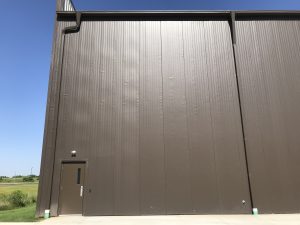
Is There a Way to Eliminate it Completely?
The short answer to this is no. Overall, remember science is sometimes working against you and there is no way to eliminate it entirely. So instead of trying to beat it, join it. The tips we’ve outlined in this article can dramatically reduce the effects of oil canning and help give you the stunning finished product you envisioned.

